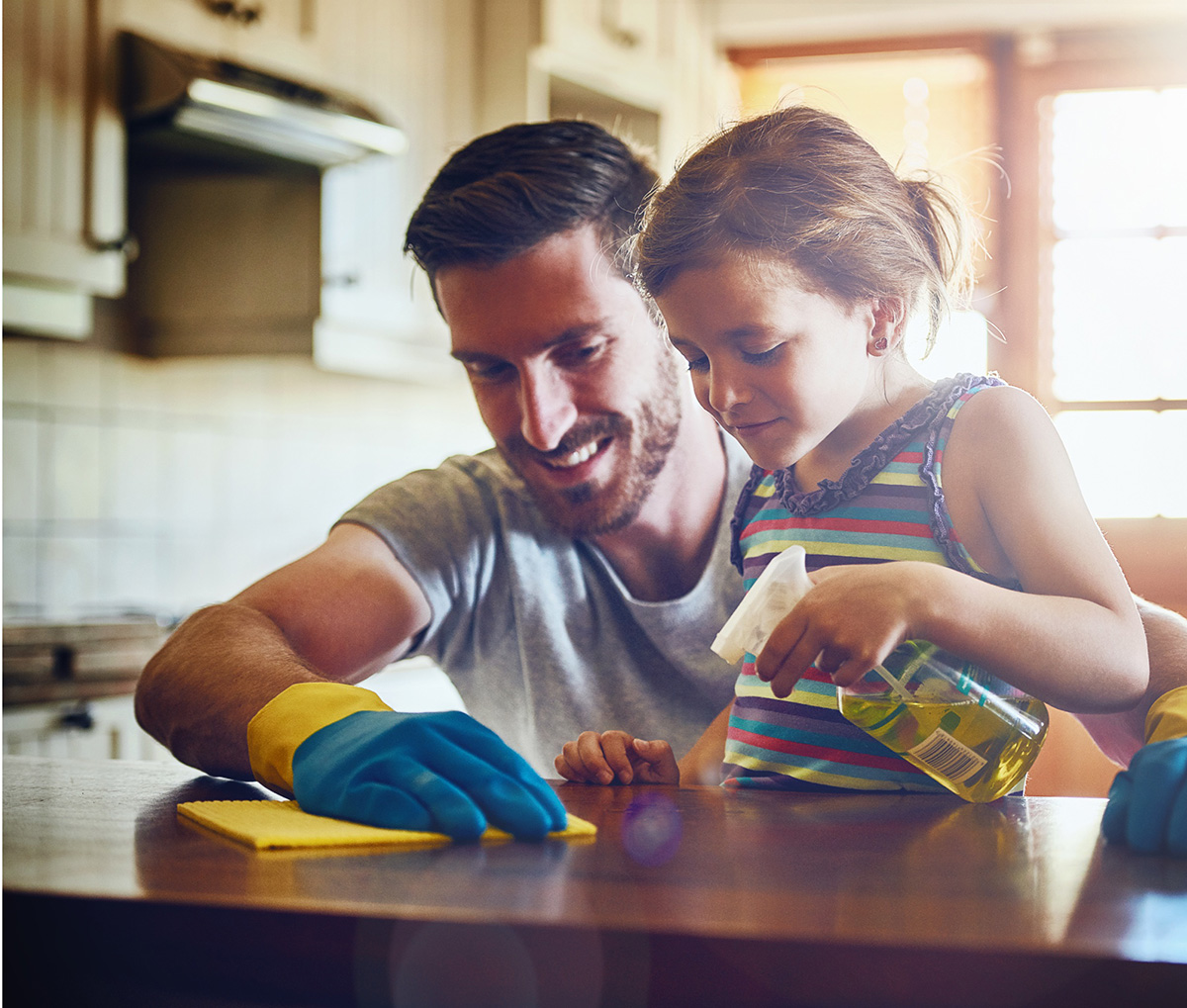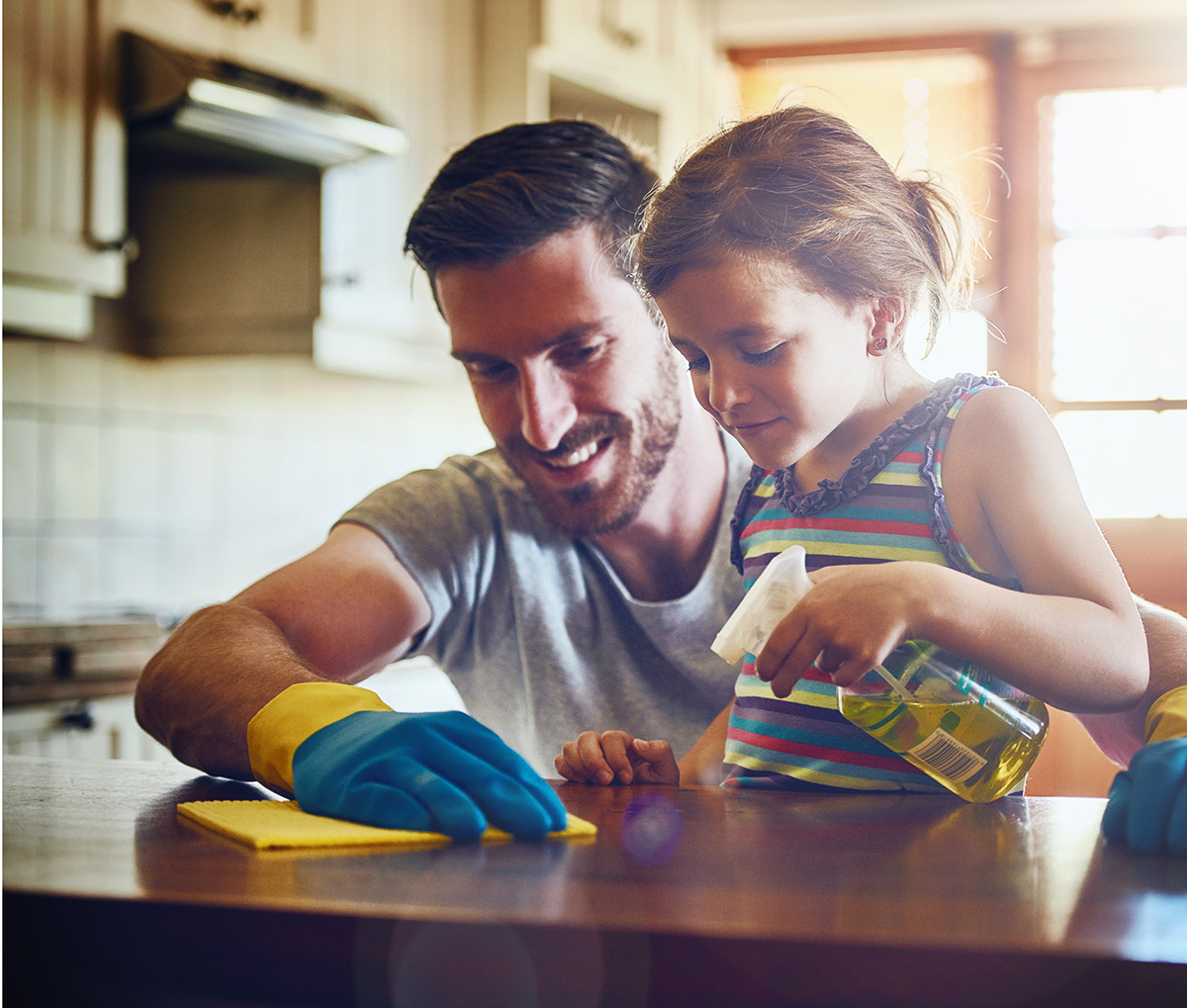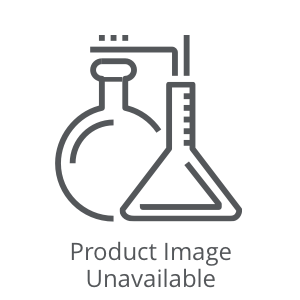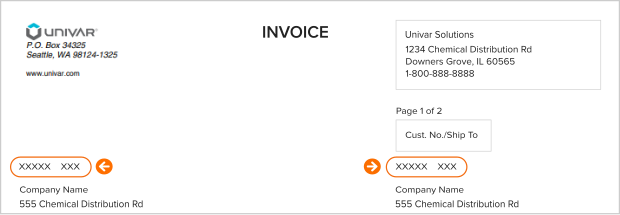We’re here to provide you with more information or help answer any questions you might have. Send us a note and we’ll get back to you as soon as possible.
Partnering with microbes in your cleaning products
Cleansers with spores of non-pathogenic probiotics. Enzymatic and microbial biosolutions. You want to do what with my cleaners?
For today's conscientious consumers, these scientific terms break down to this: wiping out harmful bacteria with beneficial bacteria using your everyday, common household cleaning products. What are microbial cleaners and are they effective in deep cleaning our surfaces?
Our cabinets and cleaning closets are filled with disinfectants meant to clean homes and businesses. However, some of the chemicals in these formulas may be more volatile than we realize. This is where microbes swoop in to save the day.
But how do microbes, sometimes called probiotics, work in cleaning products? Aren't they better suited for yogurts that combat bloating than on our home and industrial surfaces? Actually, the answer is they fit into both! Let's talk about how allying with microbes is the next step toward more sustainable cleaning.


"Microbial cleaners can extend the effectiveness of cleaning applications by making their way between the microscopic cracks and crevices of surfaces, continuously breaking down unseen grime and effectively controlling the unwanted bacteria that produce stains and undesirable odors."
Over-sanitizing, are we doing more harm than good?
To make room for new worries centered around outbreak disease, our minds have pushed aside other health issues we used to focus on regularly. Even prior to 2020 household disinfectants were a staple – after all, children are germy and eliminating what they bring in will help keep them healthy, right? Turns out, some of those germs are beneficial to our microbiome (a combination of living microorganisms inside our homes, and even in the human body – read more on healthy gut bacteria here).
By killing 99.9% of bacteria, we are inhibiting other bacteria from settling into our surfaces the way nature has intended. This has only been exacerbated with recent spikes in over-sanitization to curb the spread of infectious diseases. The prevention of beneficial bacteria and microbes coexisting with us harmoniously in our microbiomes can increase the risk of health problems such as obesity, diabetes and heart and lung disease.
Reintroducing beneficial bacteria into our lives
Microbes are already being introduced in the food and beverage industry to promote a healthy gut. Brands tout their ability to restore the composition of the human microbiome and introduce beneficial functions to gut microbial communities. Brewing companies launching new kombucha lines, free-from dairy products entering the shelves and plant-based proteins all contribute to the betterment or prevention of gut inflammation and other intestinal or systemic disease phenotypes.
So, what happens when these known bacteria are introduced into our cleaning regimen? When we break it down, microbes can help us go beneath the surface for a deeper, healthier clean. Like dietary probiotics in our food, these biological cleaning aids promote greater surface microbiome diversity. And while chemical agents do what they say on their labels, research shows that surfaces can become contaminated soon after cleaning.
According to research from Novozymes, microbial cleaners can extend the effectiveness of cleaning applications by making their way between the microscopic cracks and crevices of surfaces, continuously breaking down unseen grime and effectively controlling the unwanted bacteria that produce stains and undesirable odors long after they've been applied.
Are microbial cleaners still as effective, though?
As consumers gain more knowledge around the topic, they start to reject the idea of killing 99.9% of bacteria—searching for a cleaning solution that will improve their home and microbiome, rather than harm it. However, powerful performance is still essential.
Farmers have started using these safer alternatives to reduce the chemicals their animals are exposed to, leading to healthier livestock and less infections. So, if these cleaners can clean an actual pigsty, surely, they can clean our surfaces?
Although perceived as a gentler alternative, using sustainable cleaning products doesn't mean they are less effective or that our surfaces will stay dirty. In fact, microbial cleaners are proven to be powerful performers: A Microbiology and Medical Genetics study1 that tested the use of probiotic cleaners in hospitals determined that they reduce the occurrence of drug-resistant bacteria, and in another study on disinfectant, soap, or probiotic cleaning several surfaces were tested with a conclusion that these naturally-derived cleaners can effectively form stable surface biofilms while excluding pathogens.
Rethinking the notion of clean: not all bacteria are harmful
So, why clean with microbes? We share the world with microbes and they are effective, sustainable cleaners. Rather than combat them, we can join forces with nature and microbes within our homes and communities without removing these beneficial bacteria through over-sanitization. If you're in the market to create products that meet the growing demands of health-conscious consumers or improve existing formulations, we provide innovative microbial solutions from Novozymes. Formulating with microbes lets nature in, with sustainable products that support a more balanced and healthier microbiome.


Learn more about creating a beneficial and eco-friendly biosolution for naturally derived products for home and industrial cleaning.
References:
1. National Institutes of Health: Impact of a Probiotic-Based Cleaning Intervention on the Microbiota Ecosystem of the Hospital Surfaces: Focus on the Resistome Remodulation - https://www.ncbi.nlm.nih.gov/pmc/articles/PMC4757022/




